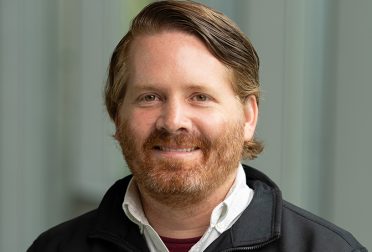Suzanne Livingston
SDM ‘13
B.S. Management Information Systems
M.B.A. Human Factors in Information Design
When Suzanne Livingston came to SDM in 2013, she had both a technical background and an MBA under her belt. However, in her role as an offering manager at IBM, she desired to grow in analytical and systems thinking.
“I was working with a global team and building products that scaled to millions of users over many years. I needed an engineering focus, not just a business focus,” she said. “The SDM program was balanced – a focus on engineering and a current view of strategic analysis frameworks from Sloan.”
What are the key things you learned at SDM that you routinely use in your work today?
There were three key courses that influenced me most. Nancy Leveson’s course on various software process methodologies. Her goal wasn’t to convince us to choose one process over another, but more to show us that news processes emerge and evolve. We need to know how to look at that process and determine what about it is useful. Agile is one such approach, and that was preceded by other approaches. Her point was to look at each process, leverage what is useful, and not be so focused on the idea that the process has to be followed prescriptively. That is something I use in my day-to-day work.
The other classes were System Dynamics and Systems Architecture. In my work, I live in an organization designed around the System’s Architecture, so the course resonated well. However, when I took System Dynamics, I began to see associations between the architecture and its downstream impact. In other words, if we make changes to one part of our system, how does it impact other seemingly unrelated parts, what is the cost going to be, and how does it impact the client experience. System dynamics taught me how to analyze a change and evaluate the impact of that change on all players to better understand if you are willing to take the risk. At work, we worry about “analysis paralysis.” Now, I feel more comfortable making decisions quickly, bringing awareness of the impact the change might bring and being willing to take the risk.
How did the SDM program change your job trajectory?
After graduating, my responsibilities expanded significantly, and I grew in both level and responsibility since. At the time I was the product manager for one portfolio, and after school I expanded to run a majority of the portfolios in my unit. A year later, I was hired to launch a new growth product in a completely different business unit. By going back to school, I showed that I had the desire to continue to learn and I don’t have a fixed mindset. I had grown my career in one business unit for 9 years and learned a tremendous amount. IBM tends to bring well-rounded technologists into leadership positions, especially focusing on technologists that can manage and grow a business. I proved that I was willing to and able to successfully continue to learn. I had no idea it was going to make this much of an impact.
What would you say is the value proposition of a degree in engineering and management?
It’s an investment in you. I believe that technical depth makes me a stronger product manager. As a product manager, I can get removed from engineering if I choose to focus solely on the business, especially as I grow in responsibility. Staying true to my technical roots is really important. When I am looking for someone to join my team, I look for people who have a balance of deep technical experience and a desire or curiosity to learn the business skills side of things.
What is the importance of systems thinking?
Impact and prioritization. As we are deciding how a system evolves or if we are creating one from scratch, as we look at additional capabilities or expanding the scope of the architecture, each of these is adding complexity. Is that complexity worth the result? Is that complexity going to impact the existing outcomes that the architecture is supposed to support? Once we understand the impact and see potential derailments can we find a solution that is more elegant or less complex? We are often stuck in the mindset of our specific area; for example, if we make changes to security, what is the impact on system performance? Now I can spot people who have a systems thinking mindset.




